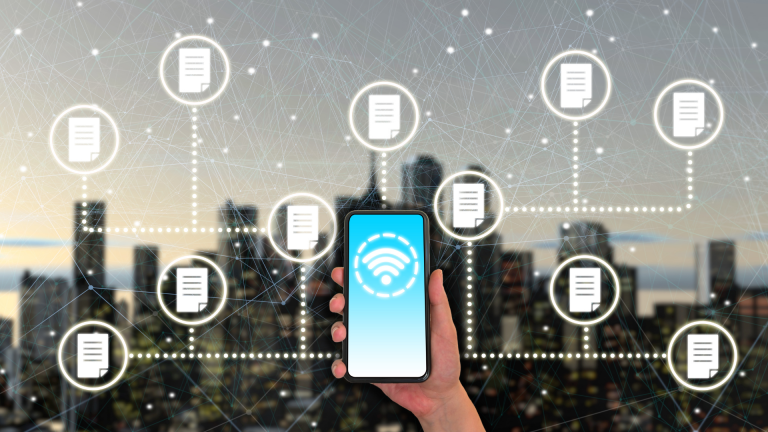New mobile platforms are introduced every day, and with them, new concerns arise. With the introduction of 5G networks, one thing security experts have been concerned about is how to properly secure these networks from possible hacking.
What is a Mobile Network?
A mobile network is a system that allows mobile devices to access the internet. Mobile networks are used by both individuals and businesses.
Mobile networks are important for businesses because they allow employees to work from anywhere in the world. They are also important for individuals because they allow them to stay connected to the internet even when they are not near a computer.
The main types of mobile networks are:
1. 3G Network
This is the most common type of mobile network. It allows you to use your phone to access the internet and email. 3G networks can be found in many places around the world, including most countries in Europe and Asia. 3G networks can be slow, but they are generally reliable.
2. 4G Network
4G networks offer much faster speeds than 3G networks. They are most commonly found in developed countries like the United States and Canada. 4G networks can also be found in many other developed countries and some developing countries, but they are not as common in developing countries. 4G networks can be very fast, but they can also be more expensive than 3G networks.
3. WiFi Network
A WiFi network allows you to use your phone to access the internet, but it does not require a mobile network. You can find WiFi networks in many public places, such as libraries and coffee shops. WiFi networks are not as fast as 3G or 4G networks, but they are generally more reliable.
The Importance of Mobile Security
In today’s digital world, mobile devices are ubiquitous. For many businesses and individuals, a secure mobile device is their most important way to access the internet or their virtual workplace. This presents a unique set of concerns for mobile network operators (MNOs). These devices need to be protected from threats that could cause irreparable damage to the individual or business that’s using mobile networks.
The first line of defense against unauthorized access to a mobile device is the user’s password. However, passwords can be easily guessed or stolen by criminals. MNOs can help protect users by requiring two-factor authentication for account access. In addition, MNOs can employ other security measures such as having secure connections between mobile devices and the network, using firewalls to protect data, and encrypting data at rest.
MNOs also need to protect their networks from attacks that could impact their customers’ experience. For example, an attack that disrupted service would frustrate customers who rely on their phones for work or personal life. Attacks that degrade the quality of service or cause unwanted advertisements could have a much greater impact on customer loyalty and revenue. By hiring a company like this IT support company Edmonton, an MNO could reduce threats and increase their security measures to prevent cyber attacks.
Another significant issue that MNOs face is network downtime due to system failures or unexpected surges in demand. Such outages can result in widespread service disruptions and can leave customers without access to essential communication services. This not only damages the MNO’s reputation but can also lead to substantial financial losses due to lost revenue and potential penalties.
However, by partnering with a reliable IT managed service provider tampa (or elsewhere), MNOs can implement robust network monitoring and maintenance systems that can proactively identify and address potential issues before they escalate. Additionally, IT companies can help to establish failover systems and disaster recovery plans, ensuring that any downtime is minimized and services are quickly restored.
By taking these steps, MNOs can help protect users and their data while ensuring that they remain competitive in the digital age.
Current State of Mobile Networks
Mobile networks have become an essential part of modern life. They allow people to stay connected wherever they are, and they also become a way for businesses to reach customers. However, mobile networks are also vulnerable to attack.
There are several reasons why mobile networks are vulnerable to attack. First, mobile networks rely on wireless links, which can be easily disrupted or attacked. Second, mobile networks are typically not as secure as traditional networks. Third, mobile devices are often used without proper security measures, which makes them more vulnerable to attack.
All of these factors make mobile networks ripe for exploitation by criminals and hackers. In recent years, there has been an increasing number of attacks on mobile networks.
One of the most notorious attacks was the 2017 WannaCry outbreak, which affected hundreds of thousands of computers across the world. WannaCry used a vulnerability in Windows XP to spread across networks.
Mobile networks are also frequently targeted by hackers who want to steal personal information or gain access to sensitive files. In recent years, there has been an increase in mobile malware, which is malware that targets mobile devices. Mobile malware can infect devices whether they are using a traditional network or a mobile network.
Overall, mobile networks are vulnerable to attack and they continue to be a target for criminals and hackers. However, advances in technology have made it easier for companies and individuals to protect themselves from these threats.
Despite these advancements, an attack on the network might occur anytime. This is one of the reasons why it could be beneficial to seek the help of a leading IT support in your area. They could be able to troubleshoot the issues and make sure everything works smoothly.
Solutions for the Future
There is no doubt that mobile security is of paramount importance for mobile network operators (MNOs). In a world where devices are becoming more and more personal, MNOs must protect their users from potentially harmful content and applications.
Today’s MNOs need to be able to handle a more diverse range of devices, including older iOS and Android smartphones as well as newer Windows 10 Mobile handsets. To meet these challenges, the MNOs need to have a well-coordinated mobile security strategy that covers all devices in their network.
Some of the key steps MNOs can take to improve their mobile security include:
- Implementing a robust malware scanning solution across all devices in the network.
- Ensuring users have up-to-date software on their devices and regularly download updates.
- Creating policies and guidelines for users that outline what is and is not allowed on the network.
- Training employees on how to use mobile security solutions and educating them about company policies.
So, mobile security is a major concern for MNOs and they need to take steps to protect their users from potential harm. By implementing a well-coordinated mobile security strategy, MNOs can ensure that their users are safe and protected.







Recent Comments